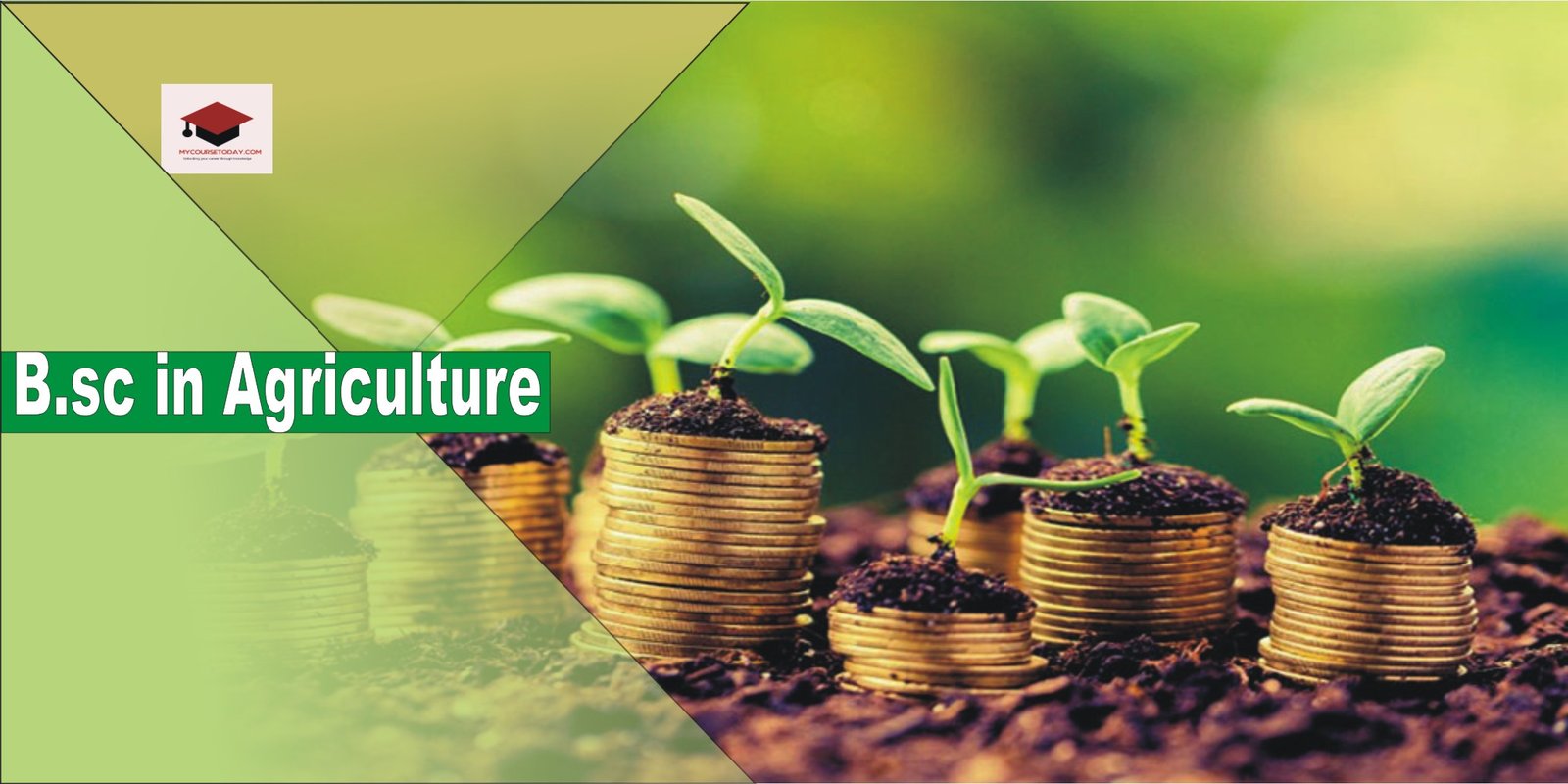B.Sc. in Agriculture
B.Sc Agriculture Course Highlights
|
Name of the Course |
Bachelor of Science (B.Sc) Agriculture |
|
Duration of the Course |
03 Years |
|
Eligibility Criteria |
Science background students who have completed their 10+2 studies from a recognised Board with at least 50% marks are eligible. Students should have studied Physics, Chemistry and Biology mandatorily at the qualifying exam level |
|
Entrance Exams |
· BCECE · PAU CET · MP PAT |
|
Admission Process |
Both entrance test based and merit-based admission process |
|
Average Course Fee |
INR 2 Lakh to INR 3 Lakh |
|
Average Beginning Salary |
INR 3 LPA to INR 6 LPA |
|
Usual Job Profiles |
· Agriculturist · Agriculture Technician · Agriculture Development Officer · Agricultural Research Scientist · Assistant Plantation Manager |
B.Sc - Agriculture Eligibility Criteria
The eligibility criteria for B.Sc agriculture admission in Indian institutes/universities are mentioned below in pointers -
- Applicants should have completed their class XIIth studies from a recognised Board
- Applicants should have compulsorily studied Physics, Chemistry and Biology at the qualifying exam level
- Applicants should have at least cleared their respective qualifying exams with 50% aggregate minimum
- Applicants who have studied Mathematics at the qualifying level can also apply provided they have also studied Biology along with the other science stream subjects
- Applicants should not be less than 18 years of age to be eligible for B.Sc agriculture admission
B.Sc Agriculture Admission Process
There are two ways of getting admission into the B.Sc agriculture programme offered by various colleges/universities -
- Direct Admission- Aspirants should apply for admission via the application form released by the college/university before the last date and admission is done on the basis of the qualifying exam scores obtained by the eligible candidates.
- Entrance Based Admission- Aspirants have to apply for the entrance exams conducted for B.Sc agriculture admission by various reputed agriculture colleges/universities. After the entrance exam is conducted, some colleges/universities conduct an additional counselling round or personal interview round before the final allocation of seats.
B.Sc - Agriculture Syllabus
First Year:
|
Comprehension and Communication Skills in English |
Production Economics and Farm Management |
Introduction to Computer Applications |
|
Fundamentals of Agribusiness Management |
Rural Sociology and Constitution of India |
Principles of Agricultural Economics |
|
Plant Biochemistry |
Agricultural Marketing, Trade and Prices |
Educational Psychology |
|
Agricultural Finance and Co-operation |
|
|
Second Year:
|
Principles of Soil and Water Engineering |
Economic Entomology |
Energy Sources and their Application in Agriculture |
|
Crop Rest and their Management |
Farm Power and Machinery |
Sericulture |
|
Protected Cultivation Structures and Agro-Processing |
General Entomology |
|
Third Year:
|
Dimensions of Agricultural Extension |
Agricultural Microbiology |
Entrepreneurship Development and Communication Skills |
|
Soil Microbiology |
Extension Methodologies for Transfer of Agricultural Technologies |
|
Fourth Year:
|
Fundamentals of Statistics |
Weed Management |
Field Crops - 1 (Kharif) |
|
Irrigation Water Management |
Introductory Agriculture, Principles of Argonomy and Agricultural Meteorology |
Practical Crop Production - 1 |
|
Practical Crop Production - 2 |
Rain-fed Agriculture and Watershed Management |
Field Crops - 2 (Rabi) |
|
Farming System, Organic farming and Sustainable Agriculture |
Experimental Techniques in Agricultural Research |
|
B.Sc - Agriculture Career Options and Job Prospects
Agriculture graduates. There are various private sector as well as government sector jobs available for graduates. With organisations like NABARD and ministry of agriculture, there is a lot of scope for lucrative jobs in the field of agricultural science. Skilled individuals are required by private firms that produce agricultural products in order to enhance their production techniques as well as business. With the requirement to come up with sustainable methods of agriculture, there is also a lot of scope for research India is an agriculture-based economy and offers various opportunities to B.Sc after pursuing B.Sc. in agriculture. Following are some of the profiles that candidates can pursue after completing this course:
- Agriculture Officer
- Agricultural Research Scientist
- Marketing Executive
- Assistant Plantation Manager
- Agriculture Development Officers
- Agriculturists
- Agriculture Technician
- Business Development Executive
- Rice Breeder
- Junior Agriculture Specialist
- Seed Technologist
- Junior Associate – Research
Salary of a fresh graduate in this field can vary from Rs. 2 lakh to Rs. 4.5 lakhs depending on the organisation that the individual plans to join. It has been observed that the Government of India pays better salary packages to candidates who have pursued B.Sc. in agriculture as compared to the private firms i.e. Rs. 3.5 lakh to Rs. 4.5 lakh. However, in order to get employment in the government departments, one has to clear the government entrance exams. To enhance the salary scope after pursuing B.Sc. in Agriculture, candidates can pursue MBA in Agribusiness management as this field has a lot of scope in India. Salaries after MBA can vary from Rs. 8 lakh to Rs. 15 lakh.
